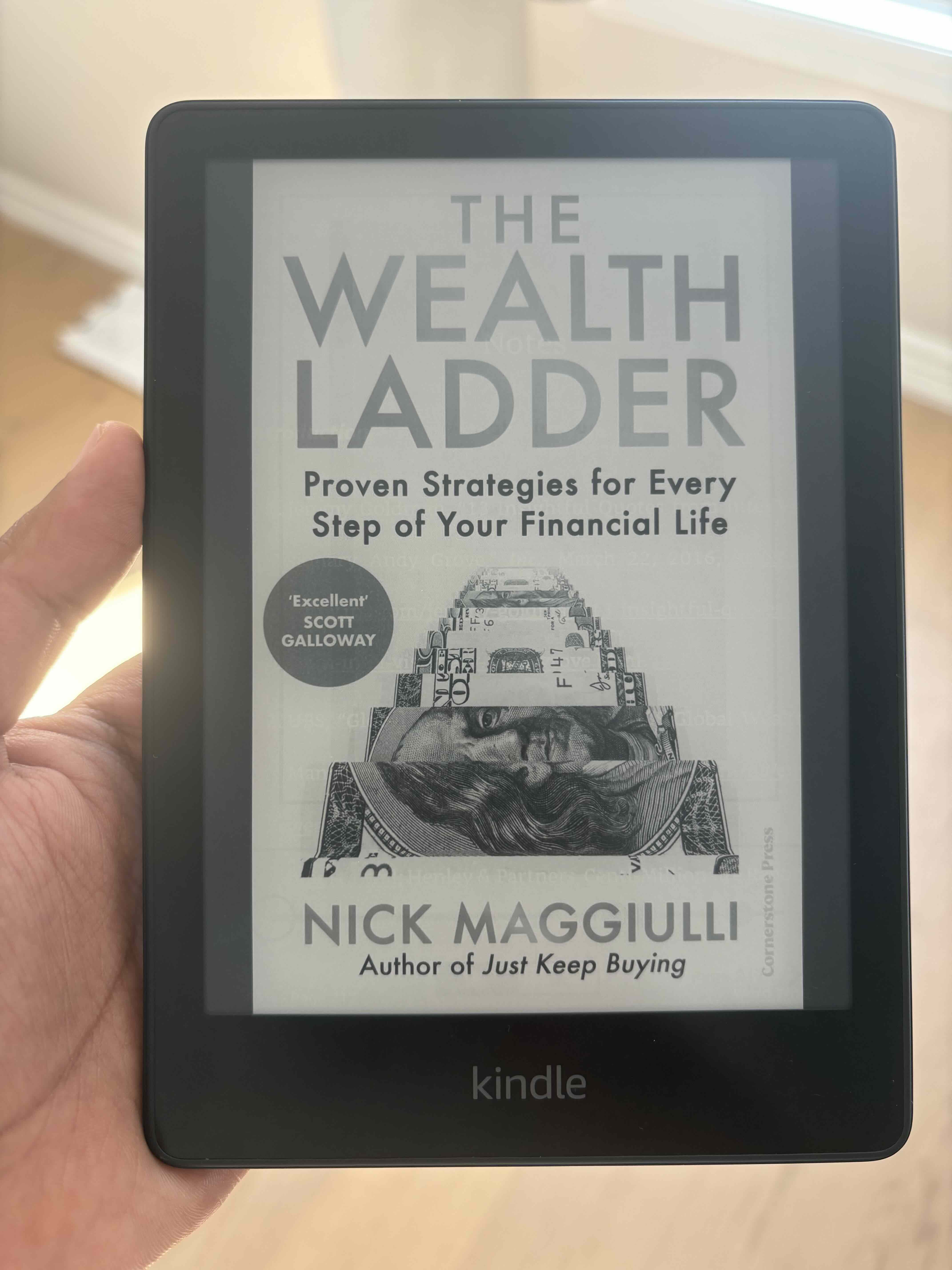Book Notes for The Wealth Ladder by Nick Maggiulli
Honest Review
- Terrific book on financial literacy and the psychology of finance in general.
- Real life exp & anecdotes provide practical insights instead of being bookish.
- I have never read ofdollarsanddata.com before, but the author has taken immense efforts to substantiate (almost) every datapoint he brings to form his opinion which helps the readers to form their own.
- Although sometimes, it feels slightly repetitive and somewhat boring. But maybe its me, I’m not too much data oriented. But for folks like me, there are other psychological nuggets, so I’m okay for the tradeoffs
Favorite quotes & highlights
Your education is an asset that will pay you dividends for the rest of your life.
What you’re good at What you’re interested in What people will pay for
As we saw in chapter 2, the four kinds of leverage are: labor, capital, content, and code.
You are separating your time from the creation of value.
Economists call these monotonic preferences. This means that if I give you something you like, you will always prefer more of that thing over less of it.
many things that wouldn’t normally be risks become risks once you have enough money.
This suggests that it’s rare for older households to have little wealth, but even rarer for younger households to have lots of wealth. This doesn’t mean that you are going to have to wait until you’re seventy to see the fruits of your labor, but don’t expect to see it in your twenties either.
First, most households stay in the same wealth level over time. You can see this by looking across the diagonal of the table. For example, 46 percent of households in Level 1 are still
More importantly, even if a household didn’t move up a level on the Wealth Ladder, they still likely built wealth.
You must first secure your own mask before you can assist others.
This means that as your wealth increases, your happiness also increases, but at a decreasing rate.
But when you constantly chase your future, your future never comes.
The issue here is that both money and salt are only valuable relative to what’s around them.
“Do what you love and you’ll never have to work a day in your life.”
None of those prior failures matter anymore, because I was able to find my own version of success.
I used to view money as a scarce resource that needed to be preserved. Now I see it as a tool to live a better life for myself and those around me.
